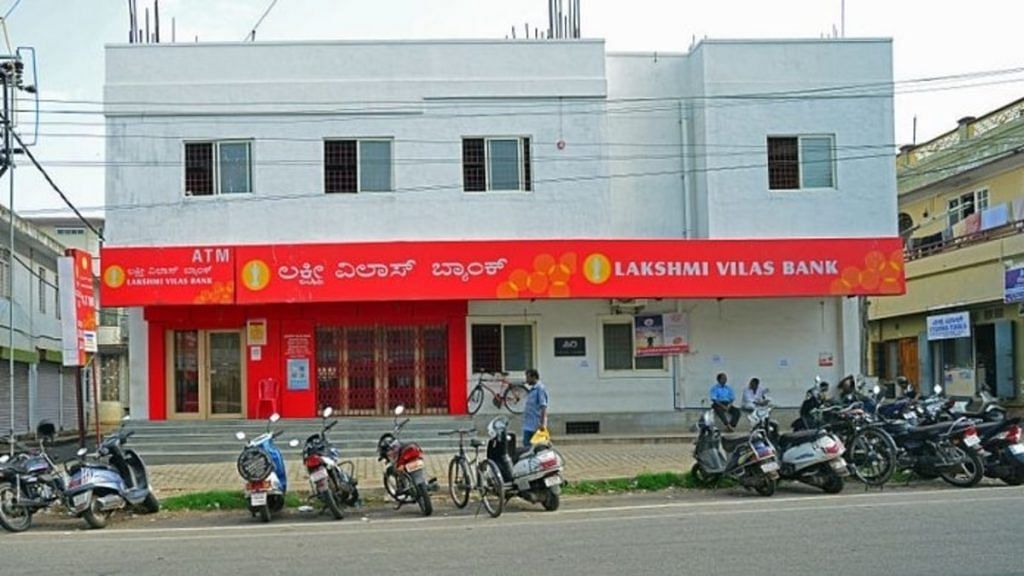Mumbai: The Reserve Bank of India had rejected a proposal from Singapore’s DBS Bank to acquire 50 per cent stake in Lakshmi Vilas Bank in 2018, two years before the latter was put under moratorium Monday.
The RBI has also superseded LVB’s board and proposed the draft scheme of amalgamation with DBS Bank India Ltd (DBIL), a wholly owned subsidiary of DBS Bank Ltd, Singapore.
The RBI had rejected DBS’ bid in 2018 because the foreign lender was not ready to dilute the promoter’s stake in the bank. Indian norms set a period for the promoters to reduce their stake in private sector banks to 15 per cent.
DBS Bank had made the offer in 2017-18 via merchant banker JP Morgan, which was appointed to raise capital for the old generation private sector lender LVB.
“Earlier, they (DBS) expressed interest when JP Morgan was involved with the bank for raising capital,” K.R. Pradeep, the promoter of LVB, told ThePrint.
“I have not met them (DBS), but it was JP Morgan with whom they discussed the issue. They wanted to invest in LVB and hold 50 per cent and above, with no dilution,” Pradeep continued.
“DBS was not willing to agree to the dilution, and RBI was not interested in giving any concession. Thereafter, DBS was not in touch; it was in touch with the government of India,” he said.
ThePrint emailed queries to DBS, but there was no response till the time of publication of this report.
Also read: How RBI moved quickly to save Lakshmi Vilas Bank, and why it chose Singapore’s DBS for merger
How things could’ve been different
If the 2018 deal had gone through, Lakshmi Vilas Bank could have retained its identity, which it is set to lose under the current proposed draft amalgamation scheme of the RBI.
The DBS was interested in a 50 per cent stake, but will now get 100 per cent, under the current proposal.
“They were looking at it as a business ownership and not like any other private equity investor who takes the investment gains and goes out,” Pradeep said, explaining why DBS was not ready to dilute the stake.
Around 10 to 15 investors showed interest in Lakshmi Vilas Bank during that competitive bidding process of 2017-18. Offers were made by prospective investors, with the highest bid at Rs 155 per share and the lowest at Rs 100, thus valuing LVB anywhere between Rs 3,500 crore and Rs 5,000 crore.
Give fair return to shareholders
Pradeep, who has close to 5 per cent stake in LVB, will be making a representation to the RBI, requesting the regulator to value the assets and give a fair return to the bank’s shareholders. In the present scheme, there is no price discovery for the bank’s valuation, and its shareholders’ value will extinguish.
“May be 26 per cent ownership is given to LVB shareholders in the merged entity because according to the present investment policy of the government, a foreign shareholder in a bank can have a maximum 74 per cent stake,” Pradeep said.
“The RBI can also allow LVB shareholders to contribute Rs 1,000 crore through a rights issue, or they can issue a warrant,” he added. RBI had said DBIL will bring in additional capital of Rs 2,500 crore “up front”, to support credit growth of the merged entity.
While putting LVB under moratorium, the RBI said its financial position had undergone a steady decline, as it incurred continuous losses over the last three years, eroding its net-worth. In absence of any viable strategic plan, declining advances and mounting non-performing assets (NPAs), the losses are expected to continue.
Furthermore, LVB has not been able to raise adequate capital to address issues around its negative net-worth and continuing losses.
“It has also experienced serious governance issues and practices in the recent years, which have led to deterioration in its performance,” RBI had said.
Also read: With Lakshmi Vilas Bank, RBI has got its rescue act right
